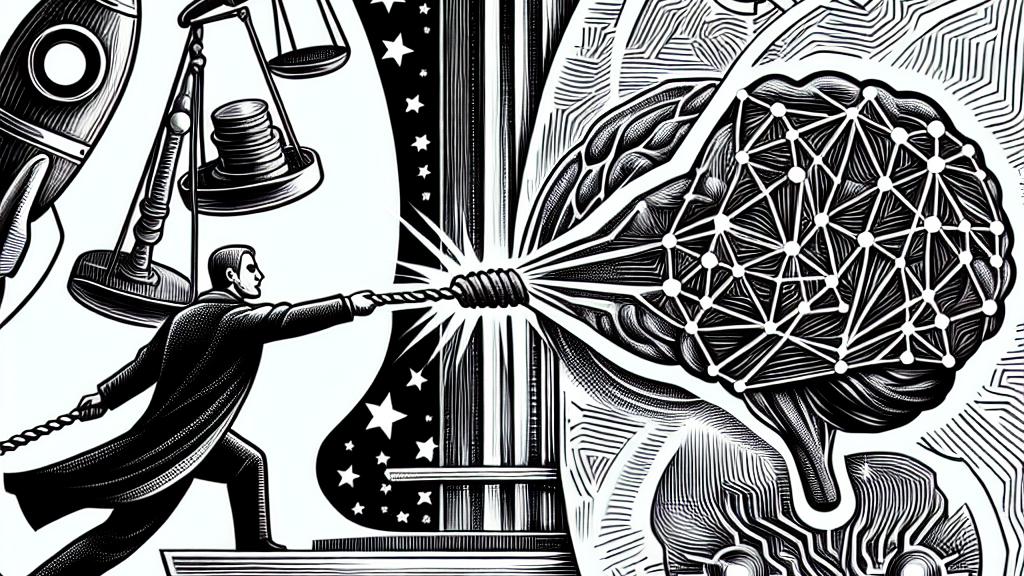Elon Musk vs OpenAI: A Battle for Humanity or Just Profits?
Overview
- Elon Musk has filed a lawsuit against OpenAI, alleging the company has shifted from its original mission to prioritize profits.
- The lawsuit claims that OpenAI's leadership deceived Musk and breached commitments made during its founding.
- This legal dispute raises vital questions about the ethical responsibilities of AI development and technology's role in society.

Context of the Lawsuit
In August 2024, Elon Musk initiated a new lawsuit against OpenAI in Northern California, asserting that the organization he co-founded has veered from its altruistic roots. Musk, who has historically invested heavily in OpenAI and played a crucial role in its establishment as a nonprofit body aimed at technological advancement for public benefit, claims that its current operations prioritize profit over societal good. This legal action comes amid a growing apprehension about the influence of financial motives in shaping the direction of artificial intelligence and its applications.
Musk’s Personal Investment and Disillusionment
Elon Musk's early involvement with OpenAI included not just financial backing but also significant intellectual contributions, helping to recruit top AI talent. However, following his resignation from the board in 2018, Musk became increasingly disillusioned with the company’s leadership, particularly concerning its pivot towards commercialization. His lawsuit mirrors a deeper frustration that transcends financial disputes — it highlights a fundamental disagreement regarding the ethical framework underlying AI development. Musk contends that OpenAI's leadership, particularly CEO Sam Altman and President Greg Brockman, have betrayed the foundational mission by engaging in practices that favor corporate profitability over technological transparency and societal welfare.
Ethical Dilemmas Surrounding AI Development
This lawsuit is situated within an essential ethical dialogue about artificial intelligence as it rapidly becomes a cornerstone of modern life. Musk’s accusations express concerns that the pursuit of profit can lead to dangerous outcomes, particularly in terms of user safety and technology governance. There are broader implications for how AI technology should be developed and regulated. Industry leaders are calling for frameworks that emphasize ethical considerations, as the potential for AI to impact jobs, privacy, and security is immense. Musk argues that the deployment of AI technologies should prioritize addressing pressing global challenges rather than merely driving financial success.
Public and Industry Reaction
Public responses to Musk’s lawsuit have been varied, reflecting broader societal anxieties regarding technology and governance. Some voices in the tech community praise his efforts, interpreting him as a whistleblower advocating for ethical standards in the face of corporate greed. Others, however, view the lawsuit as an expression of Musk's personal grievances, suggesting that his departure from OpenAI has led to jealousy over its current success and direction. This spectacle illustrates the complex interplay between personal ambition and broader ethical considerations in technology, pushing society to question how these narratives influence the future of AI.
Implications for the Future of AI Governance
As the case unfolds, it is likely to spark more extensive discussions about the governance of AI and the responsibilities of its developers. Experts believe that establishing ethical guidelines for AI usage will be vital to earning public trust and ensuring technology benefits society at large. Musk’s actions may contribute to a pivotal shift in how technologies like AI are perceived, prompting an evaluation of responsibilities that tech companies have toward users. With AI’s rapid growth, there’s an urgent need for regulatory frameworks that balance innovation with ethical considerations, ultimately shaping policies that align technology with humanitarian goals.

Loading...